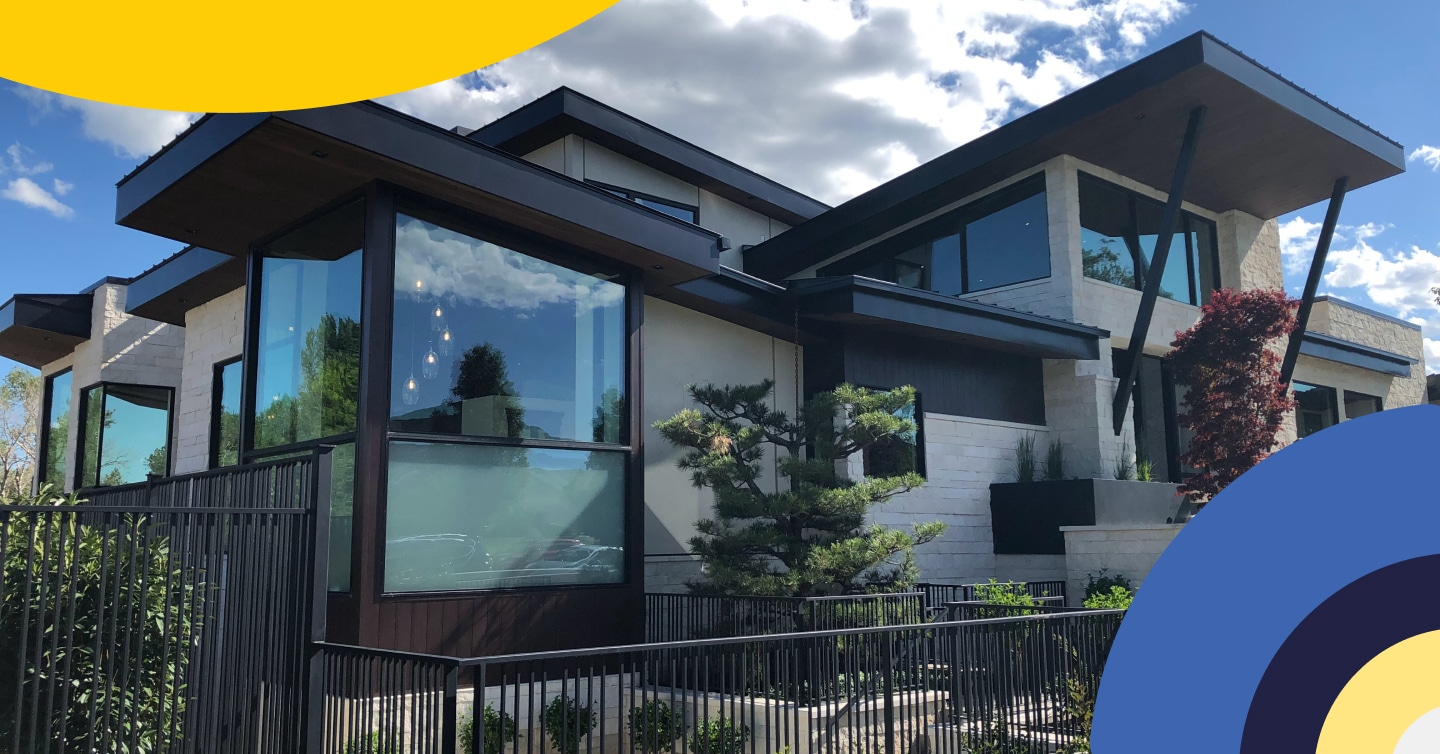Should I Retire with a Mortgage in Canada?

Table of contents
Today’s seniors don’t have it as easy as generations before them. Yes, it is true that our advancements in medicine and technology have improved the quality of life. However, these have not reduced financial burdens; on the contrary, us living longer has made the cost of everything accelerate as there are more consumers than ever before.
Typically, the generation before would fulfill their dream of homeownership in their 20s after getting their first job – back when post-secondary education was not needed to get a fulfilling career so no student debt to weigh you down. Then, by their 50s, their mortgage would be fully paid off and they could focus their attention towards retirement planning; though those older, well-defined benefit pension plans did make retiring so much easier.
Seniors today are living longer with more obligations – in some cases, due to the current housing affordability crisis, they are even having their grown independent children move back in with them. The cost of everything has gone up – including the money that they must set aside to fund their longer time spent in retirement. On top of this, they need to pay down a mortgage at higher interest rates just before going into retirement.
In this article, we’re going to look at the costs of carrying a mortgage into retirement as well as finding ways to mitigate debt into retirement. We will look at options that seniors and pensioners have to manage their investments and cash flow to increase their quality of life. We will also clarify some ideas that might not have such a rosy reputation so that we can really delve into their value in the retirement planning process.
Key Takeaways
- Fixed income and tighter cash flow will make it harder to carry a mortgage in retirement.
- Reverse mortgages and downsizing are some of the most cash-flow-effective ways to stay a homeowner into retirement.
- Easier to qualify for a HELOC prior to retirement as income will be higher.
Pros and Cons of Retiring with a Mortgage
Death and taxes are a fact of life — retirement is the stage between them where your likelihood of death increases and getting taxed decreases. But times have changed and the cost of living has surged in the last few decades making it harder for seniors to enjoy some of the experiences that they were postponing. Moreover, a lot more retirees are starting to retire with a mortgage. That brings us to the main question: Should you retire with a mortgage?
On the positive side: Paying off your mortgage is not only smart financial planning, and it’s also one of the best ways to save for retirement. Not having that monthly payment will allow you to redirect resources toward other investments with higher returns. Increasing your investment in tax-deferred accounts such as RSPs will cut down on taxes during working years and defer to later retirement years when you’re expected to be in a lower tax bracket. This will make it easier to keep more of your money in your lower-income earning retirement years. Lastly, by paying off your mortgage prior to retirement you’ll have access to more equity in your home if you decide to downsize, or even rent.
The flip side of that? Owning a home is not for everyone. When you’re in retirement and own a home, it can be especially challenging to maintain the property. Aging has physical limitations. Typically, if you’re entering retirement as a homeowner but have paid off your mortgage, then you likely bought your home a while back or had a very small mortgage balance, to begin with. This may mean that you likely own a bigger home than you may need now – making it more time-consuming to maintain it. Yet, that’s not always the case. If you’re retiring with a mortgage today with surging interest rates then you’ve got one more challenge – a financial challenge.
Methods to Reduce Retirement Expenses To Afford a Mortgage
We briefly chatted about the pros and cons of having a mortgage in retirement. First, if you expect to have a mortgage when you retire, treat it like a financial fact, not a failure. After all, you worked hard for your money and were able to secure a big debt obligation such as a mortgage, but many can’t. Not everyone’s path to financial freedom is straight and narrow – some are full of obstacles, twists and turns. The journey to financial freedom can be bumpy, but it’s worth the ride.
But since you’re actually going to have to carry a mortgage into your retirement? Let’s look at educating you on your options so that you can understand all the choices available to you.
Get a Reverse Mortgage
Reverse mortgages have come to be embedded in our memory with Gordon Pape’s introduction of HomEquity’s CHIP reverse mortgage back in the 1990s. They weren’t really valued at the time as prices of homes were still much lower and pensions were able to afford seniors who were retiring in those days a comfortable retirement.
30 years later, baby boomers that are retiring today have been caught between supporting their retired parents with elderly care while still taking care of their adult children who have moved back in to save money for their own down payment. These 2 financial and time burdens close to retirement have stunted the growth of savings and investments of elderly baby boomers who are retiring today. Leaving retirees looking for options to fund their retirement in atypical ways: getting a reverse mortgage to use your home’s equity is just one of them.
Reverse mortgages are like a HELOC (Home Equity Line of Credit) with an option to have a fixed or variable rate, but unlike a typical mortgage, they don’t rely on income to qualify and don’t access 80% of your home’s equity. Instead, they are qualified on only up to 45 to 55% of your primary residence’s equity, your age and the location of your home. Unlike a typical mortgage, you also don’t need to make any payments on a reverse mortgage, as they are based on a premise that property values will keep increasing over long periods of time.
The reason that you can only access just a bit more than half the equity is that the rest is kept to protect against the build-up of any negative equity – aptly phrased as a negative equity guaranty. This means that you’d never owe more than the fair market value whenever you decide to sell or pass away.
Reverse mortgages will hold back what is needed to service property taxes on your home to avoid any liens from the municipality due to any non-payment or accruement to keep the credit facility in good standing. Lastly, reverse mortgages are as flexible as your plans so if you don’t need everything that you qualify for then you can just take and use what you need. They are a great tax-free option to fund your retirement while continuing to live in your home while the home’s price keeps increasing over time.
Access Equity
Generally speaking, our parents will tell you to pay off your mortgage first. This may seem like sound advice to them after going through multiple market crashes and recessions. However, nowadays we are living in different times, contrary to this belief paying off your mortgage is not always the smartest thing to do for three main reasons.
First, if you pay off your mortgage then you won’t have a mortgage and after a few years, your ability and habit to pay down a big ticket obligation will also fade on your credit bureau. Along with this and reduced income in retirement, it may be a challenge to secure a mortgage. Typical (prime) mortgage lenders are looking for clients that will not be a risk and continue to pay their mortgage with regular payments as agreed. The risk they will see in this case will be the limitation of your age compared to your mortgage amortization. This age versus amortization risk appears in the form of a higher stress-tested mortgage payment.
For example, if you’re 65 years old and the typical life expectancy in Canada is 83 years that means your mortgage’s risk to the lender will have to be 22 years or less. Meaning your stress-tested mortgage must qualify over a maximum 22-year amortization.
In numbers, that equals to qualifying on a monthly payment of $738 (on 22 years amortization) instead of $700 (over 25 years) for every $100K in mortgage balance (stress tested at 7% = 5% + 2%).
Secondly, if you don’t have a mortgage on your home then none other than yourself has an interest in your home’s title. Meaning that if someone should try to fraudulently put a lien then only you will be responsible for making sure that this doesn’t happen. Yes, your title insurance will protect you but for seniors sometimes it’s a challenge to find paper-based title insurance documents – well after some fraudulent transaction has occurred. Conversely, by setting up a mortgage you will not only have to be obliged to purchase title insurance again but also have a lender watching their interest against your home’s title – providing added peace of mind.
Lastly, your income is higher prior to retirement and your age is lower so qualifying for a mortgage is much easier. Now you don’t have to get a mortgage, as in borrowing hundreds of thousands of dollars all of sudden when you don’t have a need for it and then making principal and interest payments. But you could set up a collateral charge mortgage with a HELOC – maxing out your qualifying amount on the charging facility when your full pre-retirement income is still intact.
To access your home’s equity a HELOC (Home Equity Line of Credit) can be set up early on with a lower interest rate than you can get on any reverse mortgage. You won’t have to make the interest-only payment until you start using it. But mindfully you should start using it on a monthly basis to pay your regular bills and fully pay off when you are paid. This will keep the facility active so your lender does not reduce the limit, close it or cancel it due to inactivity. This is the longer-term solution that will work for your long-term maturing financial needs.
Rent Out Your Home
In retirement, your children have moved away. Maybe you’re lonely. You’ve got space. More space than you need to live in. Maybe it’s just too big to maintain, but you still love it. If you’re attached to this home, why not make this situation work for you instead by renting out part of your home? If a roommate will be younger and more able-bodied than you then you could work out some arrangement to get their help to clean or shovel snow in exchange for you covering their part of the utilities.
This option to create income or simply reduce your carrying costs for your mortgage will depend on your ability to let a stranger live in your house and your general sociability. Perhaps it will give you the perfect amount of socializing without having to change your neighbourhood and lifestyle. There can be many other benefits to having a roommate. It’s best to work out all the pros and cons of your individual situation. It’s also important to do your due diligence in finding the right person who will blend well with your personality and home.
Downsize Your Home
One of the most popular options to maintain your financial well-being in retirement is downsizing. Some choose to sell their homes and rent, while others prefer to keep homeownership on the table. If your children have moved away and you’re struggling to manage your home while maintaining a bigger mortgage; it might be worthwhile to downsize.
Downsizing to a smaller home will free up some equity to enjoy your quality of life while still giving you ownership – without the need for a mortgage with a monthly payment. Downsizing can come in the option to have a condo or a smaller home with the possibility to relocate to be nearer to your friends and family.
Being able to socialize and having a support network into retirement has added benefits for your mental and physical well-being. Relocating to be near your friends will provide the outlet you need as your age and mobility decline to still have some fun and do activities in your new community. Downsizing to remove the need for a mortgage will have a big positive impact on your mental well-being as it will remove one more point of stress in your finances when you have a fixed income in retirement.
Continue Working
If you still have mortgage debt and are coming up short on your retirement income then perhaps continuing to work is a suitable option for you to make your financial situation work. Perhaps you do need to have a mortgage and downsizing is not an option. Moreover, you have built up a social network in your community relocating to a home in a new neighbourhood is also not an option. Then you’ll have to manage your finances with extra cash flow.
Having a job in retirement is not all as terrible as it sounds. Staying active and making some money while you still have the energy is always a great way to stay on top of your finances. If working full time isn’t an option, then try looking into part-time jobs that will help with expenses until retirement becomes more affordable in years ahead!
Socializing to keep your mind active and the physical need to go to work will add to maintaining your physical abilities in the later years. As well you could create more room to make additional contributions to your RRSPs.
Final Thoughts
Retirement can be a time for rest and relaxation so you can enjoy the fruits of your labour. To make sure that you achieve financial well-being into retirement it is prudent to have a plan in place to achieve all your goals. Speaking with a financial advisor early on to create a sound financial plan will have lasting rewards well into retirement. It is best to be very clear about your objectives to pay off any debts and mortgages prior to retirement. It is important to maintain discipline in investing. Treating your finances as a fixed rather than discretionary expense will help you grow more steadily and sustainably over the long term, allowing for a better well rounded lifestyle in your later years!
Find a better rate, and we’ll match it, beat it, or give you $500*.
*Conditions Apply
With nesto, it’s stress-free
Frequently Asked Questions
In this section, we’ll answer some very common questions that retirees or those planning to retire have about a comfortable lifestyle into retirement.
How much money does the average Canadian need to retire comfortably?
The average Canadian retiring today needs about $800K in savings and investments (including their home) to comfortably enjoy their retirement. This number is not a set number but investment advisors will tell a simpler rule. If you want to maintain your current standard of living that you’re managing with your current pre-retirement income then you’ll need 70% of this income for each of your retirement years. There is no way to be sure exactly how long you’ll live so you should plan carefully.
Example: Current income is $70K x 70% x (83yrs life expectancy in Canada – 63yo your age at retirement) means you’ll need $980K to retire comfortably for 20 years.
Do most people retire with a mortgage?
According to the Financial Consumer Agency of Canada (FCAC), about 17% of seniors have a mortgage at retirement. The average outstanding balance is approximately $200K. Having a mortgage balance is not the same as having a mortgage. As discussed earlier, you can set up a free and clear HELOC under a collateral charge (which is also a different type of mortgage) to prepare for the continual use of your equity well into retirement.
Ready to get started?
In just a few clicks, you can see our current rates. Then apply for your mortgage online in minutes!















